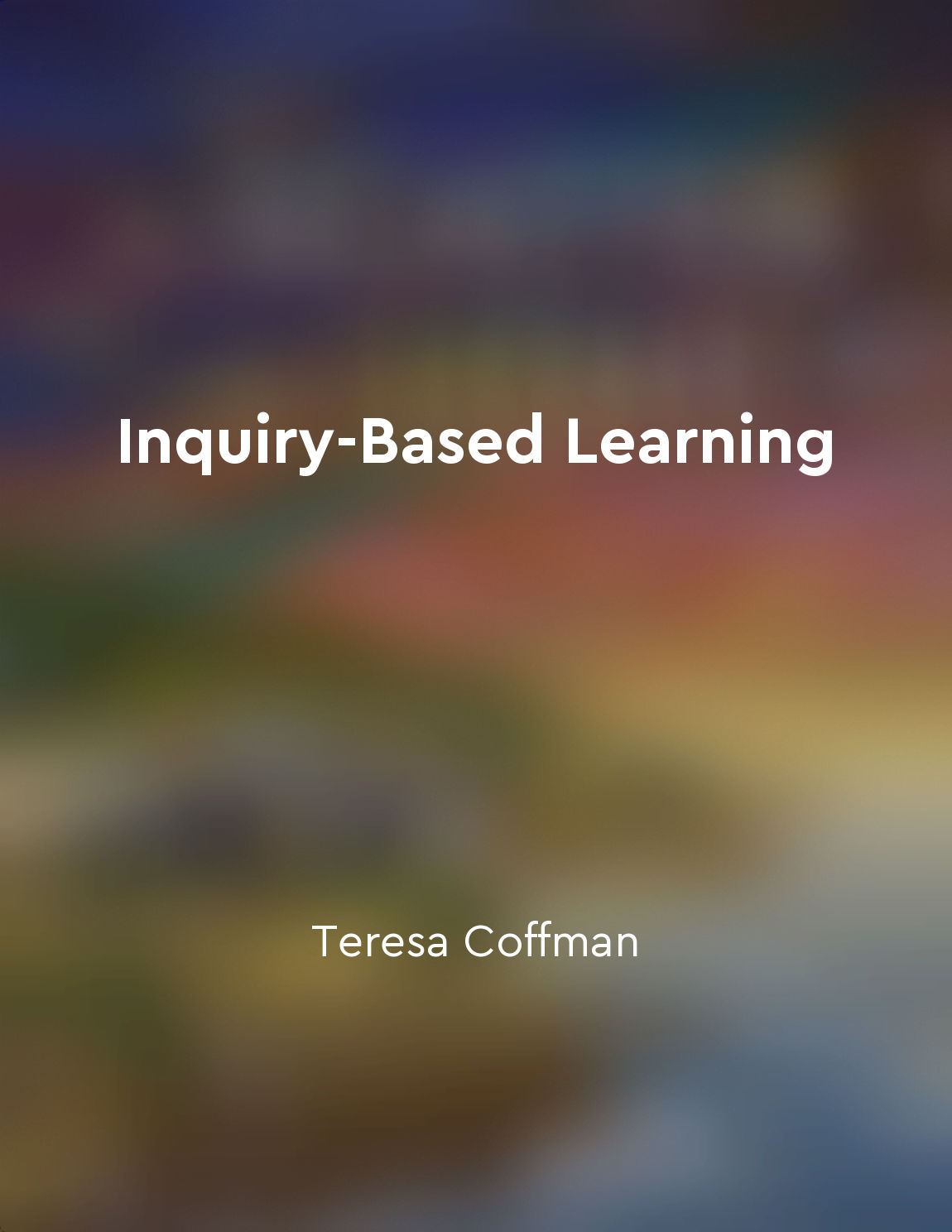Student engagement is key from "summary" of Inquiry-Based Learning by Teresa Coffman
To truly foster a successful inquiry-based learning environment, it is crucial to understand the central role that student engagement plays in the process. When students are actively engaged in their learning, they are more likely to be motivated, curious, and eager to delve deeper into the subject matter. This level of engagement is key to igniting their passion for learning and encouraging a sense of ownership over their educational journey. Engagement can take many forms, from active participation in class discussions to hands-on exploration of real-world problems. By creating a learning environment that values student input and encourages collaboration, educators can help students feel invested in their own learning process. This sense of ownership can lead to increased motivation and a deeper understanding of the material being covered. Furthermore, when students are engaged in their learning, they are more likely to retain information and apply it in new and meaningful ways. By encouraging students to ask questions, seek out answers, and think critically about the world around them, educators can help them develop important skills that will serve them well beyond the classroom. Inquiry-based learning thrives on student engagement because it encourages students to take an active role in constructing their own knowledge. By posing open-ended questions and encouraging students to explore various perspectives, educators can help students develop a deeper understanding of the subject matter. This process of inquiry not only promotes critical thinking skills but also helps students develop a sense of autonomy and agency in their own learning.- Student engagement is the cornerstone of inquiry-based learning. By fostering a learning environment that values student input, encourages collaboration, and promotes critical thinking, educators can help students become active participants in their own educational journey. Ultimately, when students are engaged in their learning, they are more likely to develop a lifelong love of learning and a deep understanding of the world around them.


